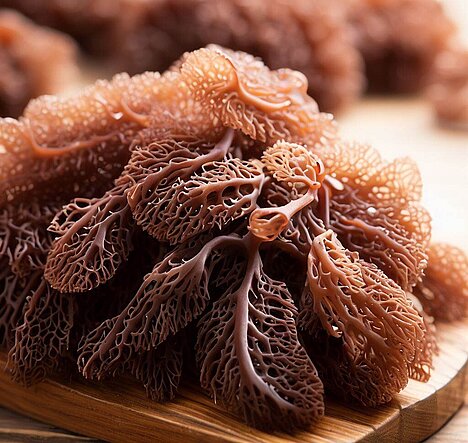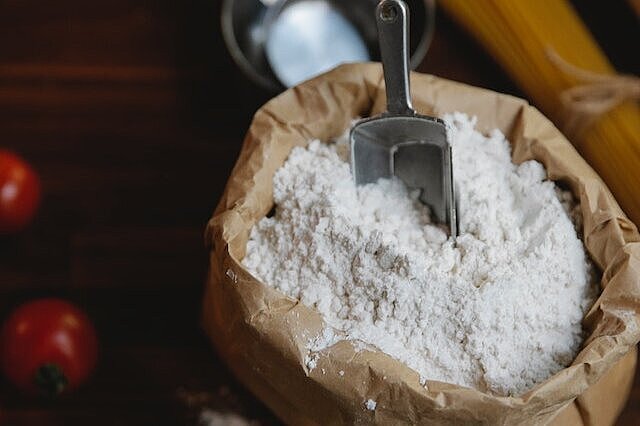Carrageenan

Benefits of carrageenan for dogs
Carrageenan has several positive properties that make it interesting for the production of dog food. Firstly, it improves the consistency and appearance of wet food by creating a creamy texture and preventing it from drying out. Secondly, it binds water and thus increases the volume of the food, which can lead to a better feeling of satiety in dogs. Carrageenan also has a high water-binding capacity, which means that it can absorb a lot of liquid. This can be helpful for dogs with kidney problems or dehydration, as it allows them to absorb more water through their food. Finally, carrageenan also has an antioxidant effect, which can promote cell protection and inhibit inflammation.
Disadvantages of carrageenan for dogs
However, carrageenan is not just a harmless additive, but can also have a negative effect on dogs' health. On the one hand, carrageenan can disrupt the intestinal flora and lead to digestive problems such as flatulence, diarrhea or vomiting. On the other hand, carrageenan can damage the intestinal wall and increase its permeability, which can lead to increased absorption of toxins and allergens. This in turn can weaken the immune system and contribute to chronic inflammation or autoimmune diseases. Carrageenan is also suspected of being carcinogenic, as it has led to tumors in the gastrointestinal tract in animal experiments. However, this effect has not yet been clearly proven in humans.
Carrageenan is a controversial additive that can have both advantages and disadvantages for dogs. It therefore depends on how much carrageenan is contained in the food and how sensitive the dog is to it. In general, the fewer additives in the food, the better for the dog.
If you notice any signs of hypersensitivity or poisoning in your dog, you should see your vet immediately. We are not a substitute for a vet, but we try to be as accurate as possible. Every dog reacts differently and we recommend you get a second opinion or consult your vet if in doubt.
Stay healthy and take good care of your four-legged friend!😊
Similar to Carrageenan
Agar-agar is an extract from red algae, which mainly grow in Asia. It has a gel-like consistency and can be used as a thickening or gelling agent. Agar-agar is tasteless and contains no animal...
Pectin is a plant polysaccharide found in the cell walls of fruit and vegetables. It is a natural gelling agent that is released when fruit is cooked or frozen. Pectin is often used as an additive...
Xanthan gum is a thickening agent obtained from the fermentation of sugar by bacteria. It has the property of gelling and stabilizing liquids. This means that it prevents the components of a product...
Guar gum, also known as guaran or guar gum, is a carbohydrate obtained from the seeds of the guar bean. The guar bean is a legume that originally comes from India or Central Africa and is now mainly...



